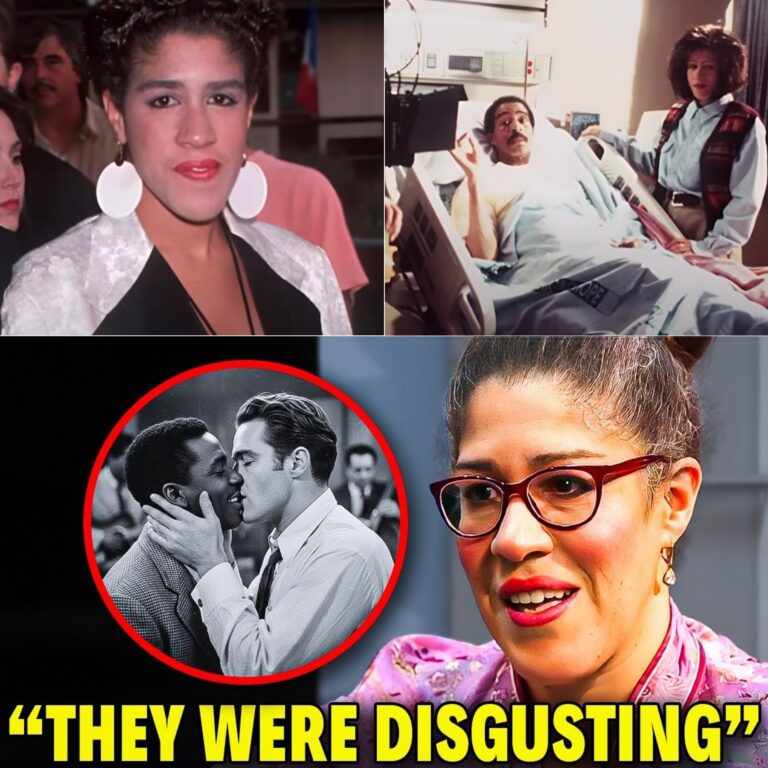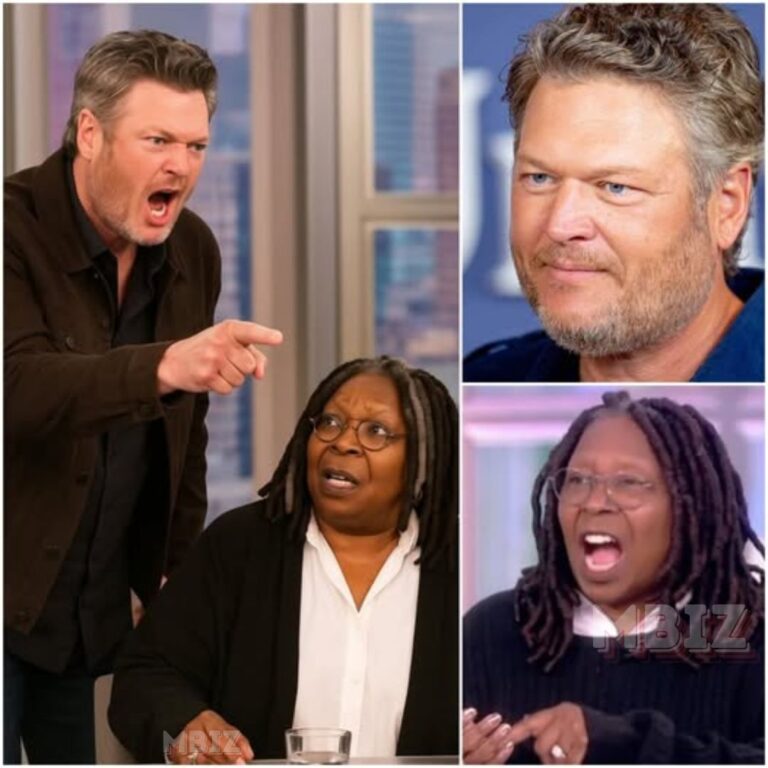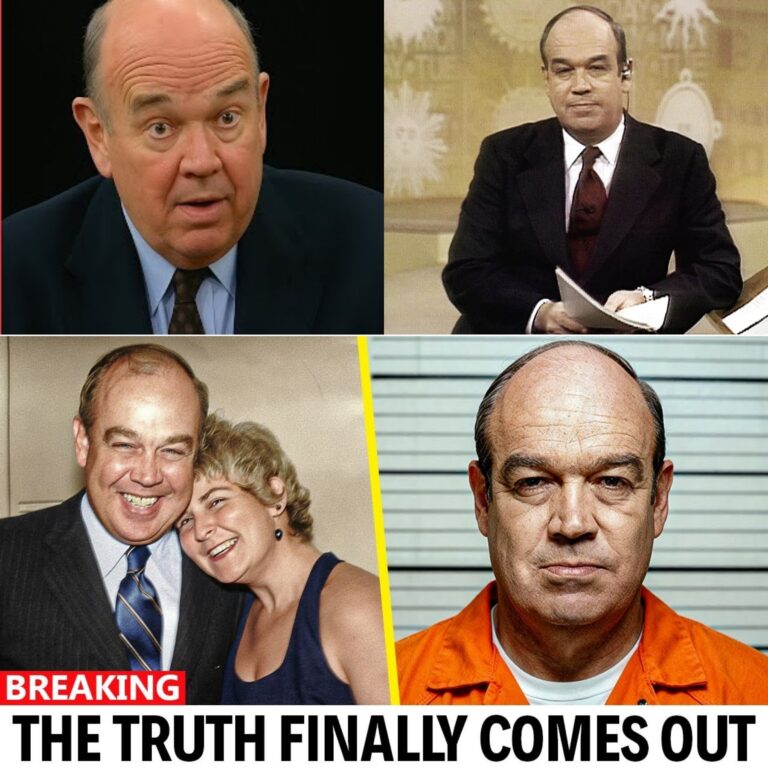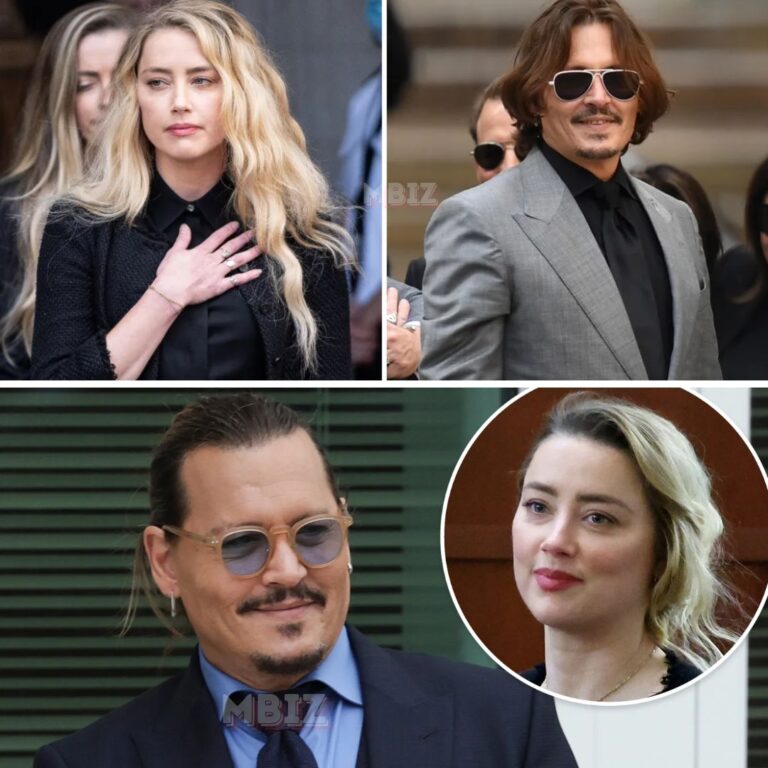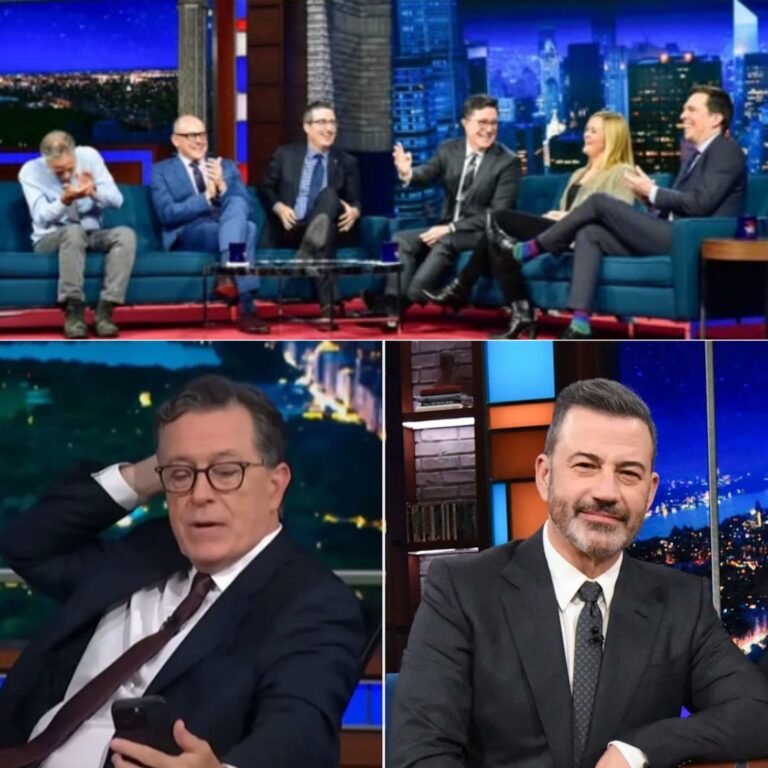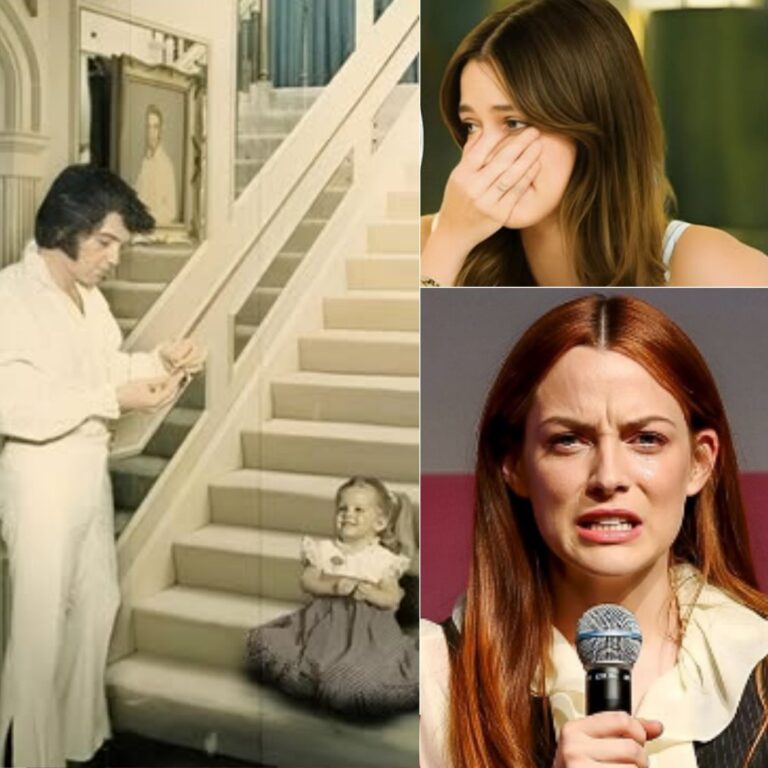Kelly Clarkson’s Message Turns Jimmy Kimmel’s Return Into a Cultural Flashpoint
When Jimmy Kimmel returned to his late-night desk after weeks of suspension and network drama, it was already one of the most closely watched moments in American television. The comeback itself carried weight—an emblem of resilience after controversy, and a test of whether audiences would still rally around him. But what transformed the night from a headline into a cultural flashpoint wasn’t Kimmel’s jokes, nor his reflections on the ordeal.
It was Kelly Clarkson.
The pop superstar and talk-show host, known for her powerful voice and candid demeanor, delivered a simple but unexpected message that resonated far beyond the walls of ABC’s studio. In doing so, she not only stood by Kimmel but also ignited a larger debate about free speech, accountability, and the role of entertainers in shaping public discourse.
A Fragile Homecoming
Kimmel’s return came under tense circumstances. Earlier this month, the late-night host was suspended following his ill-received remarks about Charlie Kirk’s assassination, a tragedy that had already polarized the nation. His comment, framed as satire, backfired spectacularly, drawing outrage from grieving families, political leaders, and even the FCC. Affiliates pulled his program. ABC benched him indefinitely.
By the time he reappeared on September 23, 2025, the damage was evident. Yes, his first night back drew more than six million viewers, a decade-high fueled by curiosity. But ratings quickly leveled off to their pre-suspension averages. Industry insiders whispered that the “return” was less a triumph than a temporary truce—a fragile deal hammered out between ABC and its station partners, Nexstar and Sinclair, who had used Kimmel as leverage in their wider carriage fee dispute.
In short, Kimmel came back, but the ground under him remained shaky.
:max_bytes(150000):strip_icc():focal(722x224:724x226)/kelly-clarkson-the-voice-82025-baae43621da9490eb4cfc972f408580c.jpg)
Enter Kelly Clarkson
Midway through the broadcast, in what many assumed would be a lighthearted celebrity cameo, Kelly Clarkson appeared on screen. She greeted Kimmel warmly, offered a few laughs, and then pivoted—shocking both him and the audience.
“Jimmy, you’ve made mistakes, we all have,” Clarkson began, her tone both gentle and firm. “But comedy is supposed to challenge us. Free speech means sometimes we hear things we don’t like. That doesn’t mean we silence the voice—it means we answer it, we debate it, we grow from it.”
The crowd erupted in applause. Kimmel himself, visibly moved, responded with a quiet, “Thank you.”
Why Her Words Hit Hard
Clarkson’s message might have sounded simple, but its impact was seismic. In an era when celebrities often dodge controversy for fear of backlash, she leaned directly into one of the most fraught debates in American culture: the balance between accountability and freedom of speech.
Her defense of dialogue over censorship struck a chord, particularly with viewers who felt the Kimmel suspension was less about standards and more about silencing dissenting voices. Fans flooded social media with praise. Within hours, hashtags like #KellySaidIt and #FreeSpeechForAll trended nationwide.
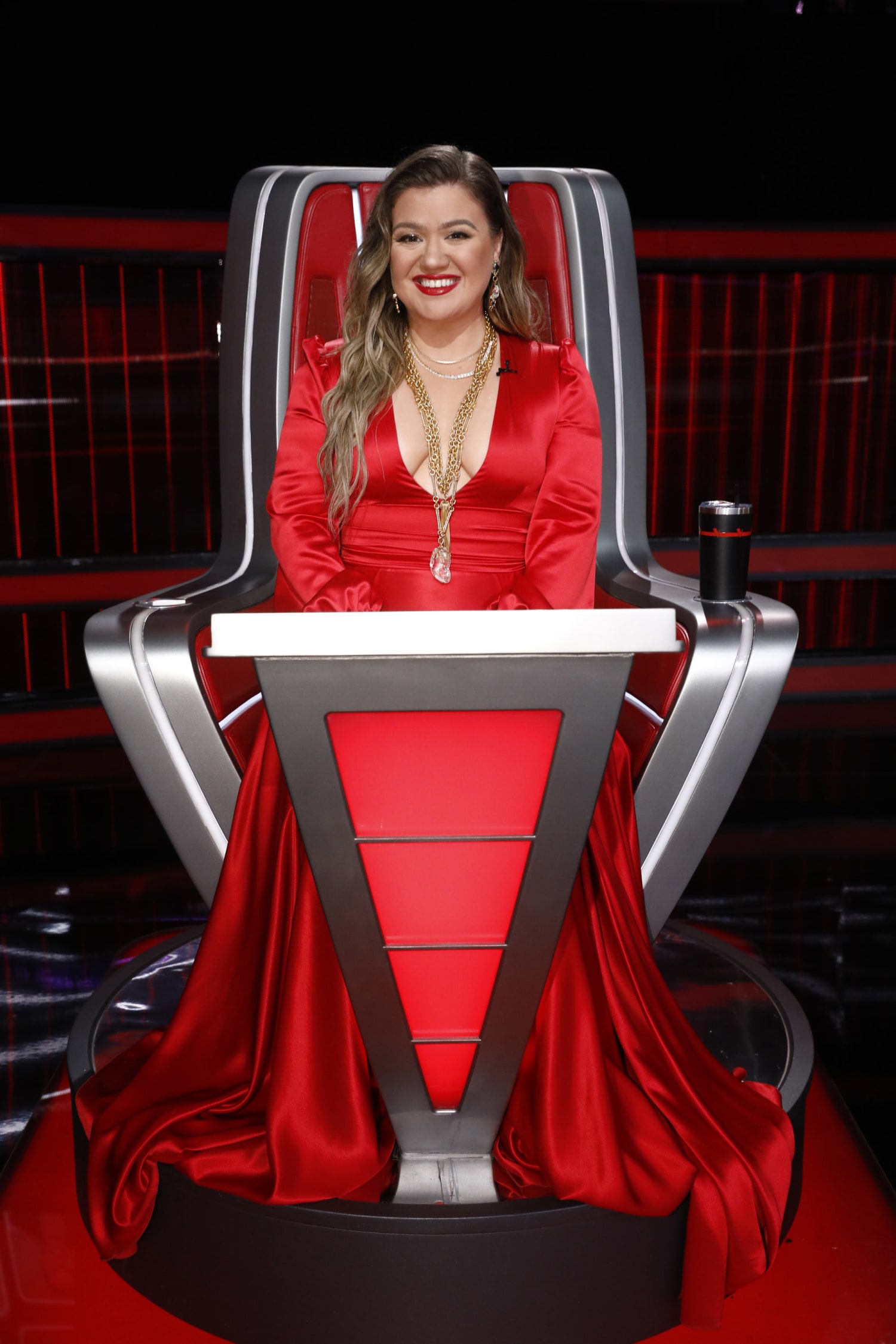
“It wasn’t about politics—it was about principle,” one fan wrote on X. “Kelly Clarkson reminded us why free speech matters, even when it makes us uncomfortable.”
A Divided Response
Of course, not everyone agreed. Critics argued Clarkson’s remarks oversimplified the issue, framing Kimmel as a victim when, in their view, he had trivialized a national tragedy. Conservative commentators dismissed her as another Hollywood insider protecting her own.
Yet even detractors acknowledged the potency of her intervention. By inserting herself into the conversation, Clarkson reframed Kimmel’s return—not as an isolated controversy, but as part of a bigger cultural battle over what can and cannot be said on America’s airwaves.
Kelly Clarkson: An Unlikely Advocate
Why did her words land with such force? Part of the answer lies in Clarkson’s persona. For two decades, she has been a rare figure in entertainment: authentic, approachable, and broadly beloved across political divides. Her rise from American Idol winner to talk-show host has made her a household name, but unlike many celebrities, she rarely wades into political firestorms.
That’s what made her statement so surprising—and so effective. Clarkson wasn’t preaching from a soapbox; she was speaking as a friend, a mother, and an artist. Her defense of Kimmel didn’t sound like spin. It sounded like conviction.
The Ripple Effect
Within days, Clarkson’s comments were being replayed on cable news, dissected in think-pieces, and debated in living rooms across the country. Supporters hailed her as a “truth-teller.” Critics accused her of naivety. But no one could ignore her.
More significantly, her words gave Kimmel something he desperately needed: cover. In the wake of his suspension, his allies in Hollywood had largely stayed silent, wary of being dragged into the controversy. Clarkson broke that silence. Her message gave others permission to rally behind him.
By week’s end, a string of entertainers—from Wanda Sykes to Chris Rock—had echoed her sentiment. None framed it as a defense of Kimmel’s joke. Instead, they echoed Clarkson’s call for dialogue over silencing.
A Broader Cultural Moment
The episode highlighted just how fragile the late-night landscape has become. For decades, hosts like Johnny Carson, Jay Leno, and David Letterman were cultural fixtures, their jokes uniting audiences across divides. Today, late-night feels like another front in America’s culture wars. Ratings are fragmented. Audiences are polarized. And every punchline risks igniting a firestorm.
Clarkson’s words didn’t erase those divides. But they reframed them, offering a reminder that free speech, however messy, is still a cornerstone of American culture.
The Future for Kimmel
What does this mean for Jimmy Kimmel himself? The truth is complicated. His comeback may never fully repair the damage from the Kirk controversy. His ratings remain a fraction of Greg Gutfeld’s, who continues to dominate late-night with his conservative counterprogramming. And insiders warn that ABC’s truce with its affiliates remains tenuous at best.
But thanks to Clarkson, Kimmel’s return will not be remembered solely for scandal or survival. It will be remembered as the night a pop icon turned the conversation from punishment to principle.
Clarkson’s Legacy Beyond Music
For Kelly Clarkson, the moment adds a new dimension to her already multifaceted career. She is no longer just a singer, a judge, or a daytime talk host. She has become, unexpectedly, a voice in the national debate about speech and culture.

Whether she embraces that role further remains to be seen. But for one night, at least, she reminded Americans that sometimes the most powerful statements don’t come from politicians or pundits, but from artists willing to speak their truth.
The Takeaway
Jimmy Kimmel’s return was destined to be scrutinized, debated, and dissected. But Kelly Clarkson ensured it would be remembered. Her words, simple yet profound, shifted the focus from scandal to something larger: the values at the core of American democracy.
“Comedy pushes us,” she said. “Free speech protects us. We can disagree. We can even be offended. But silencing each other isn’t the answer.”
In an era where outrage often drowns out nuance, Clarkson offered something rare: clarity. And in doing so, she may have transformed one man’s comeback into a national conversation that will echo long after the laughter fades.
